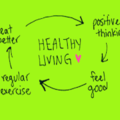Greenock, Scotland news and updates.
This post was provided by Newsnet.scot.
Peter Rowberry looks at the psychology of behaviour and conditioning that influence our choices. With a general election next month and an Independence referendum next year, it is timely to consider the challenges to preconceived determinations. Peter argues “we need to “persuade” people to move from the semi-autonomous mode of thinking into the entirely conscious mode”. He concludes we also must take that journey: “It is this that will deliver an open mind, both in us and those we converse with.”
Perhaps one of the regrets I have in life is that the amazing advances in science and technology made in the sixties and seventies do not seem to have translated into significant benefits for ordinary working people. True, we are all using more and more sophisticated technology, communicating quicker and quicker, and understand more about the universe than ever, but the improvements in the “softer” sciences, such as psychology and economics do not seem (to me at least) to have kept up with the pace of change.
I may address the issues of a “new economics” more suited to our modern society at another time, but for now will concentrate on psychology.
Many of my age group may recall Edward de Bono’s work on lateral thinking, which brought him to the forefront of public attention. In my view, this is outshone by the ideas he proposed in his book “The Mechanism of the Mind”, a serious attempt to demonstrate how our brain and nervous system behave. It does this by using a series “models”. These start with the simple act of pouring water onto a suspended plastic sheet and move onto an ever more sophisticated view with lights and switches.
As complexity is added, it seems that the working of the mind is more accurately described. His final model describes what he calls the “specific memory surface”. This thinking shows how even the most complex of systems may be broken down into more simple components. No one would deny the brain’s complexity, but can it be described by such simple analogues? When I look at my own experience, the answer to that question is undoubtedly yes.
If the de Bono model of the mind is accurate, it would have many consequences, not least in relation to how we can encourage people to examine their beliefs and perhaps, change their views.
We know from our experience that the behaviour of the nervous system can be split into two major threads; i) the autonomic and ii) the conscious systems. The autonomic controls the things which we do without having to think about them; breathing, heartbeat, temperature control, digestion, etc. This contracts with conscious, where we have time to think about our behaviour and react rationally (we hope). However, there are several activities which bridge this gap; where are conscious decisions must become almost automatic to achieve our aim.
Examples of these activities are playing sports and driving. We could describe these as “semi-autonomous”. It is not possible to face a cricket ball travelling at 90 mph and think about the shot that you are going to play. Neither is it possible to accelerate a car in a hill start and think about the biting point of the clutch and the gear to select. This behaviour can be learnt, but to be effective, it must also become almost completely automatic, based upon skill and experience. We also need to understand when to “break out” of this automatic mode into more conscious thinking.
What is remarkable is that the brain, which is substantially made from the same organelles, the nerves, all working in similar ways, can cope with all these different forms of thinking. Edward de Bono wrote that “there are those who suppose that the working of the brain will forever remain a mystery and … those who suppose the that the way the brain works will be revealed in all its detail…. Would the problems of mankind be suddenly solved by a surge in understanding?” I would say it may help and it can’t do any harm.
We may think that we have total freedom of choice. However, our behaviour is conditioned by our experience, interposed on the way our mind works. It is tempting to typify those that who do not agree with our deepest held beliefs as “mad” or suffering mental health problems. Mental Impairment is one of the most difficult to diagnose and even more difficult to treat with any chance of long-term success, so blaming madness is easy.
Those who do not belong to our crowd must be wrong or ill. This kind of thinking is hard to overcome, and many do not even want to do so.
The propensity of the mind to dig deeper and deeper channels deliver the ability to perform repetitive tasks, means that opinions, whether based on facts or not, become increasingly entrenched. I cannot count the times when I have asked people “why do you believe that?” and have been greeted by the response “It’s obvious isn’t it” even when obvious is what it is not!
Why does this matter? If we believe in the correctness of our views, we probably want to get as many people to support them as possible. We want people to investigate the facts and change their minds, but the working of the brain makes this difficult. How do we break this cycle? Let us look to Mr de Bono once more. He concentrated on how we solve problems. He says that, if we stay in the same deeply rooted channels, we are unlikely to be able to innovate or find a novel solution. We will just repeat the (possibly failed) strategies of the past. We need to choose a novel approach. When the traveller asked a passer-by how to get to his destination, the answer was “if I were you, I wouldn’t start from here”. There is more than a grain of truth is this.
We can generalise from the issues of problem solving to the attempts to get people to change their minds. For this to happen we need to “persuade” people to move from the semi-autonomous mode of thinking into the entirely conscious mode. We cannot do this if we keep repeating the messages of the past. This is exactly the kind of thinking we need to encourage change. We need to recognise and encourage radical “outside the box” thinking. It is this that will deliver an open mind, both in us and those we converse with.
You can find similar content on our blog: https://thaimassagegreenock.co.uk/blog/
Please let me have your feedback below in the comments section.
Thai Massage Newsletter
To make sure you don’t miss out on any new posts or promotions that we introduce, sign up for our newsletter.
Once a month we run a special promotion for our newsletter members, so sign up now to make sure you don’t miss out.
It’s free and full of great health and nutrition tips and advice on how we can help you achieve your health and fitness goals.
Let us know what topics we should cover in future.






